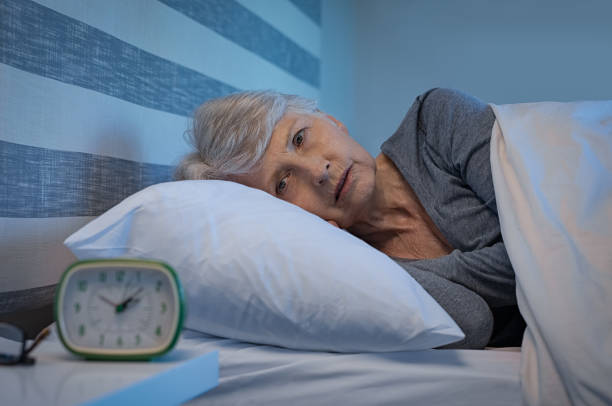Better Sleep For Older Adults
How we sleep plays a vital role in our ability to maintain optimal health. Healthy sleep is essential to our physical and mental well-being because sleep helps restore body functions, improve cognitive thinking, and minimize the risks of developing serious illnesses. Quality sleep is important at any age but for seniors, it is especially so because lack of sleep can have serious health consequences.
Understanding Sleep Disorders in Seniors
For young people, sleep comes easy. They fall asleep quickly and deeply, waking up refreshed and well-rested. Unfortunately, the same is not true for many older adults. It is estimated that more than half of men and women over the age of 65 suffer from at least one type of chronic sleep disorder with insomnia being the most prevalent complaint.
Seniors suffer more sleep related disorders than younger people because of how the process of aging impacts sleep physiology. In most cases, changes in sleep patterns are a normal part of getting older. Common sleep complaints mentioned by seniors include:
• Tossing and turning for a long time before drifting off to sleep.
• Waking up frequently during the night and having trouble going back to sleep.
• Being restless or wakeful during the night.
• Waking up in the morning feeling tired because of sleep disruptions.
The Impact of Insomnia on Seniors
Of all the sleep disorders that affect older adults, insomnia is the most prevalent problem. Left untreated, insomnia and other like sleep disorders can lead to other more serious health issues. Fortunately, these types of sleep disorders typically respond best to treatments that include behavioral modifications and lifestyle changes.
Anyone who has flown in an airplane across time zones knows that our bodies have internal time clocks operating 24/7/365. It takes time to adjust to anything that deviates from the normal patterns our bodies have become accustomed to and failing to adjust can negatively affect the quantity and quality of our sleep. This is why it is important to maintain healthy routines such as going to bed at the same time every night and waking at the same time every morning. Having a consistent sleep schedule is one of the best ways to fight insomnia.
Tips for Overcoming Sleep Disorders
A substantial number of seniors report they lie awake at night feeling restless because of worries and concerns they have in their lives. An effective way to deal with this is by making bedtime your worry-free zone. Allow yourself time during the day to ponder your life’s pressing issues but when it’s time to go to bed, put those concerns away into their daytime compartments where they stay until the next day. Your bed should always be a place for rest, not worries.
Embrace Physical Activity
Stay physically and socially active. Engaging in physical and social activities – even if you are tired – are healthy routines that will prepare you for better sleep at night. Staying home alone because you feel tired is counterproductive to quality sleeping, so get out, get involved and challenge your body and mind.
Avoid Taking Naps
Nap smartly. Try to avoid taking naps during the day if possible. If you must nap, do so for no more than one hour. Naps decrease our sleep drive and when you get into bed, you want your sleep drive to be at its maximum level. The best way to sleep more is to nap less.
Regulate Your Caffeine Intake
Moderate or eliminate your intake of caffeine, nicotine, and alcohol. When we get older, our bodies lose the ability to metabolize these substances. Nicotine and caffeine are stimulants that can interrupt sleep patterns. Alcohol may make you feel sleepy, but it can cause you to wake up more often during the night.
Limit Sleep Aid Usage
Avoid taking over-the-counter sleep aids. There are many over-the-counter drugs and supplements that promote their ability to induce sleep. While in some cases they perform as advertised, they are a short-term band-aid fix rather than a permanent cure for sleep disorders. Medical researchers worldwide have concluded that the best cure for insomnia is modifying the behaviors that cause and reinforce sleep disorders.
There are other sleep disorders that are more serious and will require different approaches including medical intervention, so it is always wise to discuss problems that you have sleeping with your primary care practitioner. For the more common problems such as general insomnia, the iconic comedian W.C. Fields gave the best advice:
“The best cure for insomnia is to get a lot of sleep.”
That is a thought you can take to bed and sleep on it, peacefully.


Leave a Reply
You must be logged in to post a comment.